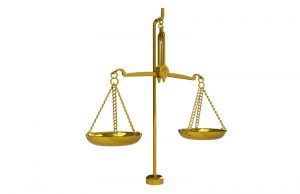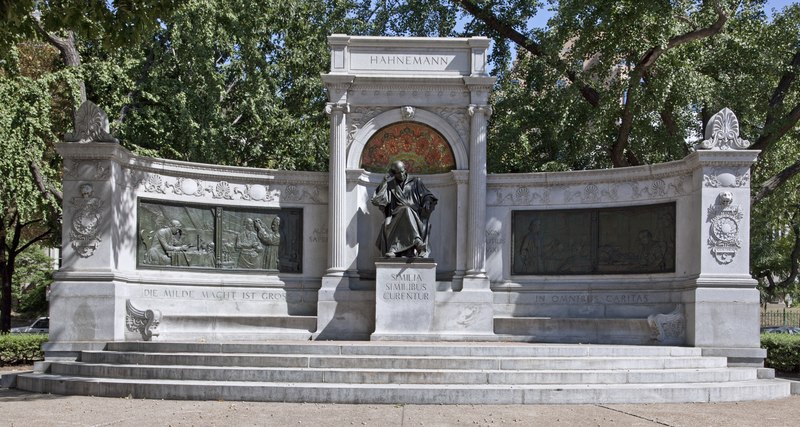Homeopathy is the only form of medical therapy that involves the least intervention while aiming to stimulate exactly what is needed for your system to awaken, revitalize, and renew itself—resonating with a higher holonity (an alignment or harmony with a greater whole)
[quote from https://holonity.com/homeopathy]
Bring to mind a picture of traditional balance weigh scales and let it represent your health. If you are in perfect balance, or harmony, you have no symptoms.

However, when sick you are off-balance and you have symptoms. These can be physical, emotional or some combination of both.
This is the counter reaction to some action; a virus, a shock, prolonged strain, perhaps influenced by your genetic make-up.
Now, although symptoms are inconvenient, they are the also the body’s attempt to cure; to retune and restore harmony.
So, symptoms have a purpose. This is a Natural Law. And, often in a few days, balance is restored without any intervention.
But sometimes the body gets stuck and needs a helping hand. You need medicine. Homeopathy is one form of medicine.
As I will explain below homeopathic medicines are different to the prescriptions or over the counter remedies you are familiar with.
Prescribing in Homeopathy is according to the ‘Law of Similars’.
The guiding principle in homeopathic medicine is the ‘law of similars’. Indeed , the term homeopathy derives from the Greek words for like (homio) and and suffering (patheia).
Homepathic medicine is holistic, which means that it considers the whole ‘you’.
This whole symptom picture, sometimes called a ‘totality’, is the basis for selecting the homeopathic medicine that hopefully nudges your body back into harmony.
In brief, the ‘law of similars’ says that a substance which causes symptoms in a healthy person, can heal a sick person suffering similar symptoms.
Put simply, homeopathy supports the natural curative action of the body.
In contrast, modern western medicine is primarily ‘anti-pathic’. Here, the Greek derivation comes from the words for opposed and suffering. Thus, there are anti-biotics, anti-depressants and so forth.
Both are valid philosophies. But the western model is dominant today. Perhaps overly so.
Maximising your in-built healing capacity is the purpose of homeopathic treatment. A return to health may avoid or minimise the long term use of conventional medications.
Homeopathy can also be supportive alongside orthodox treatment including post surgical.
From the above you can understand the terms alternative and complementary medicine. Either term can apply.
It’s a philosophy which dates back to antiquity, but was formally established in medicine around 200 years ago by the German polymath, and physician Dr Samuel Hahnemann.
You may not have heard of him, yet this grand monument sits in the middle of Washington D.C. – dedicated in 1900, it was the first monument in that city to a citizen not of American birth.

In the UK Homeopathy has a long heritage. The Faculty of Homeopathy for medical doctors was established in 1844. The Society of Homeopaths for qualified lay homeopaths recently celebrated its 40th anniversary.
Today India, in proportion to its population, has the greatest number of medical doctors trained in Homeopathy. There Homeopathy is a household name.
“[Homeopathy] is not competing with (orthodox) medicine. Homeopaths can take the pressure off doctors .. let hard pressed doctors get on with the things that they can best treat. [Homeopaths] can work side-by-side [with doctors] as they do in India”
David Tredinnick MP, 2016
Homeopathic medicines are ultra-dilutions mostly of plant and mineral origin, but some of animal origin (e.g. the venom of the bee, or the ink of the cuttlefish – Apis and Sepia respectively).
By careful experiment, Hahnemann discovered that a stepwise process of dilution and vigorous agitation of a substance produced medicinal benefit and eliminated any risk of poisoning.
He called this ‘potentisation’.
Thus prepared, homeopathic medicines are no longer (bio)chemical.
Thus, for example, the poisonous plant deadly nightshade, also known as Belladonna, when potentised becomes a particularly useful medicine for children with fever.
The potentisation process means that Homeopathic medicines (often called remedies) are quite distinct from conventional or herbal medicines.
“[Homeopathy] belongs to the art of medicine … Of course the rules of art should not be merely empirical; they should be in harmony with philosophy and science…Hahnemann’s method fulfils these requirements… his way of regarding disease and [remedy] action is eminently philosophical … to treat like with likes results logically from the facts of the matter and his reduction of dose follows as a necessary corollary”
Dr Richard Hughes (The Principles and Practice of Homeopathy, 1902 reprinted 2011 8th edition, B.Jain Publishers)
Despite the long history of therapeutic benefit, supported by clinical trials, precisely how homeopathic medicines work is not fully understood. The subject continues to divide opinions.
Regardless, years of experience show that homeopathy acts gently and deeply.
The potentisation process means that homeopathic medicines don’t act in the manner of conventional drugs. Yet, it is clear that they transmit a certain essence of the original substance.
By analogy to modern technology, they appear to have the quality of information; like a software download.
Thus, homeopathy sits closer to the science of physics than chemistry. And possibly quantum physics at that.
The good news is that the recently established HRI (Homeopathy Research Institute – see link) is now undertaking painstaking research into the fundamental science. See https://www.hri-research.org/hri-research/
Because homeopathic medicines work differently, they can safely be used alongside orthodox medicines.
Who we are as human beings remains a mystery. Clearly we are more than a collection of material things like atoms and molecules.
What does being alive mean to you?
Hahnemann, living in a less secular age, said that illness was an out of tune life force. This is where Homeopathy engages.
Sadly, the quote below from late Dr Wheeler, and former President of the Medical Faculty of Homeopathy, remains all too pertinent to this day.
“For more than one hundred years the world has wrangled over the value of homeopathy. .. But dispassionate examination of medical history reveals .. that very few of those who condemn homeopathy have a knowledge even of its principles, to say nothing of its practice.”
Dr Charles Wheeler (An Introduction to the Principles and Practice of Homeopathy, 1978 3rd Impression, Health Science Press)
As a first step, please book a FREE 30-minute discovery call.
This will help us both to decide whether homeopathy is appropriate for you, and allow you to judge whether I am the right homeopath for you. I look forward to your call. Book discovery call.
Alternatively email me at [email protected]